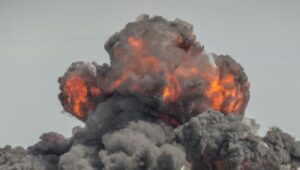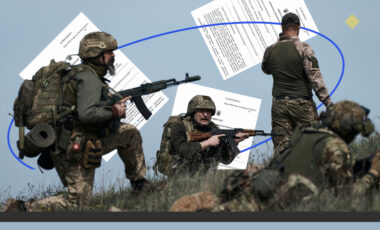Military shells falling into rivers change ecosystems: ecologists studied explosion craters

Ecologists of the Environment People Law Environmental Protection Agency made another trip to the city of Chernihiv and inspected explosion craters near the Desna River.
As experts note, part of the shells exploded underwater in Desna during the spring flood, which led to negative consequences for organisms living in water:
"During the rocket strikes and bombardments of the city of Chernihiv, some of the projectiles exploded in the Desna River, or they fell unexploded, in particular in the area of bridges, which indicates the presence of another factor affecting river ecosystems. For example, the crater from FAB 500 has a diameter of about 11 meters. Two such bombs were detonated under one of the bridges," the post states.
Since the river is a dynamic natural complex, studying the consequences is complicated.
Some sections of the damaged part of the river are on the surface, but craters from approximately 120 mm caliber mines remain. The diameter of these craters is 4 meters. In some trees, there are fragments from projectiles, which may pose a future danger to employees of the green building and foresters.
For the sake of safety, ecologists suggest marking such trees and marking their coordinates.





















































